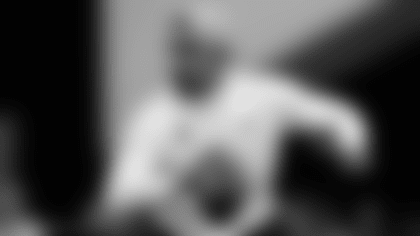When the Eagles opened their Lincoln Financial Field season against San Diego, DeSean Jackson was again the featured attraction with 9 more catches for 193 yards and a 61-yard catch-and-run touchdown. The talk that day was how the offense missed on other chances to find Jackson down the field, beyond the Chargers secondary.
In the two games that have been played since, Jackson has 5 total receptions, including a long gain of 40 yards against Kansas City and 20 yards against Denver. Defenses have not allowed Jackson to streak past a cornerback into the open field, as they've played a safety over the top to keep Jackson in front of the coverage.
With Jackson's stretch-the-defense damage limited, the Eagles haven't had as many explosive plays in the passing game, and not so coincidentally the team went from scoring 33 and 30 points against Washington and San Diego, respectively, to posting 16 in a loss to the Chiefs and 20 in Sunday's defeat at Denver.
This is stating the obvious, of course. This is a conversation among the fans for several days. The Eagles need to score more points, something everyone acknowledges. What lies ahead is the method by which the offense ups its numbers.
There are several categories to improve, and there are solutions the coaches and players are working on. While the fans can flood Twitter and the message boards and talk radio discussing the idea of adding a player from the outside, the reality is that the improvement has to come from within.
Here are some ideas from this perspective on how the Eagles can get the offense back to where it wants to be on the scoreboard ...
- Minimize the mistakes in the red zone. The offense has been hurt in all three losses with poor play in the red zone. Against San Diego, the Eagles had a first-and-goal situation at the San Diego 7-yard line after a Michael Vick throw to LeSean McCoy gained 70 yards. However, McCoy was out of the game on the next two snaps, and Bryce Brown's two running attempts gained a total of 5 yards. A third down throw when Vick moved to his left and threw short to an open James Casey was incomplete when Casey lost control of the ball as he rolled over. The Eagles scored three points when they could have had seven. Late in the game, of course, the offense failed to maximize a first-and-10 situation at the San Diego 14-yard line, as three straight passes were incomplete and Alex Henery's field goal tied the game, but also left the Chargers with 1 minute, 45 seconds on the clock to drive the field for the winning points.
Kansas City did a good job disrupting the Eagles offense the following Thursday, forcing four offensive turnovers, but the Eagles did themselves no favor on a drive in the third quarter with the Chiefs leading, 16-6. The Eagles had a first and 10 at the KC 18-yard line and LeSean McCoy gained 7 yards on first down. Two incomplete passes followed, however, and the Eagles settled for a field goal when they really needed seven points.
Philadelphia went just 2 of 5 in the red zone in Denver and the mistakes in the passing game really hurt. Tight end Brent Celek dropped a catchable pass on a third-and-4 play from the Denver 17-yard line and the Eagles settled for a field goal with the drive stalled. On another early drive into Denver territory, Lane Johnson was penalized for holding on a second-and-10 play from the Denver 13-yard line, putting the offense in a hole from which it never recovered, and the drive again yielded just 3 points.
And then later in the first half with the Eagles down 21-13 and driving, Vick went to Jackson for 19 yards to the Denver 22-yard line. Not so fast. Guard Evan Mathis held on the play, and instead of a first and 10 at the 19, the Eagles had a first and 20 at their own 49-yard line.
OK, so it wasn't exactly in the red zone, but you get the idea. The Eagles have had too many of what head coach Chip Kelly calls "self-inflicted wounds." The statistic that doesn't lie: The Eagles have 12 trips to the red zone, with only 5 touchdowns.
Too many mistakes.
That has to change, or the red-zone woes, and those just outside the red zone, will continue.
- Take some shots down the field. Challenging the secondary vertically with Jackson once or twice a game is worth the effort, isn't it? For that to happen, of course, a lot of things have to happen. Vick needs time to throw. Jackson must get a clean break off of the line of scrimmage, and the timing has to be right. The situation has to be right. Maybe, though, the Eagles can gash a defense deep as they did in Washington and against the Chargers.
- Take the football away on defense. After three takeaways against Washington and another two in the San Diego loss, the Eagles have had zero turnovers in each of the last two games. The Eagles offense has been forced to drive the field to score points. That takes a toll.
- Spread the ball around and get some other receivers down the field. Can the tight ends find a good matchup and take advantage? Can the running backs find some open space in the passing game? Are there some designed runs for Vick that can disrupt the defense? The Eagles have weapons and they're facing a lot of man coverage in the passing game, so they need to find a way to make some big plays happen.
- Minimizing mistakes in the red zone will allow the offense to keep down-and-distance snaps manageable and keep the run or pass options available. In the big picture that's probably the most consistent inconsistency the Eagles have had: execution and discipline in the red zone.
So it can be fixed, and it can be improved and the goal is to get it right for the Giants on Sunday.





















